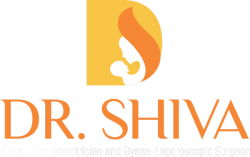
Thyroid problems or thyroid abnormalities in pregnancy can cause serious conditions like premature birth, affecting the growth of the baby, miscarriage and stillbirth. If treated on time you can have a healthy pregnancy.
Some have existing thyroid problems before the pregnancy but some may develop it during pregnancy. The symptoms of thyroid abnormalities are very similar to that of pregnancy so one may not identify them easily unless tested. They are of two types
Hyperthyroidism
Hyperthyroidism is the presence of too much thyroid hormone in the body. It is caused during pregnancy by an autoimmune disease called Graves’ disease, which creates antibodies TSI(thyroid-stimulating immunoglobulin) that stimulates the thyroid to make excess thyroid hormone. Rarely, hyperemesis gravidarum, a severe form of morning sickness, is a side effect of hyperthyroidism in pregnancy. This can result in preterm birth and babies with very low birth weight. Another risk of hyperthyroidism is thyroid storm which can complicate the pregnancy by causing high fever, diarrhea, irregular heartbeat and shock or death if not treated on time.
Symptoms you may be having Hyperthyroidism
- Severe Nausea
- Hands shivering or having tremors
- Increased nervousness, irregular heartbeat.
- Severe weight loss.
Food to include in the diet for Hyperthyroidism
- Have vegetables like broccoli, cauliflower and cabbage which contain goitrogens that help to reduce the production of thyroid hormones.
- Include food rich in protein in your diet which helps to load the Zinc into your body. Zinc usually gets depleted due to the overactive thyroid hormones.
- Avoid red meat instead include rich lean meat.
- Reduce or avoid Iodine rich food.
Hypothyroidism
The fetus requires thyroid hormone from the mother for proper development. If deprived, it can cause irreversible issues for the baby. Severe hypothyroidism can affect the brain development of the foetus. In patients having CLT (chronic lymphocytic thyroiditis) – also known as Hashimoto’s thyroiditis, the body attacks the thyroid gland, resulting in decreased production for thyroid hormones which increases the risk for still birth and miscarriage. It can also cause congestive heart failure, pre-eclampsia, placental abnormalities, and postpartum hemorrhage. For women who had hypothyroidism even before pregnancy should always keep a check on the thyroid levels during the entire duration of pregnancy.
Symptoms you may be having Hypothyroidism
- Constipation
- Muscle cramps
- Sensitive to cold
Diet to be followed for hypothyroidism
- Eat healthy meals on time and make sure the fruits and vegetables are washed well before using them.
- Have lots of leafy vegetables but avoid broccoli, cabbage and cauliflower, and soy too, which reduce the thyroid functionality.
- Include berries and nuts.
- Include food rich in Vitamin D.
Management or treatment for thyroid abnormalities during pregnancy
There should be frequent monitoring of the thyroid levels and steps will be taken based on it.
- Medication will be provided based on the issue at the same time it should be kept in mind that these medications do not have any side effects on the fetus. Some prenatal vitamins which contain iron and calcium may affect the absorption of thyroid hormones hence the medication for hypothyroidism and prenatal vitamins have to be taken with a minimum gap of at least 4 hours.
- In some cases, surgery may be performed to remove part of the thyroid if the patient has an overactive nodule.
If you have thyroid issues and plan to conceive always consult with your doctor to make sure if you need to take any treatment before getting pregnant. If the mother has Graves disease, there is a one percent chance for Neonatal Graves disease to occur in the baby. Do inform your health care provider if you have these or a had a history of these diseases.
For more information, kindly contact us.

